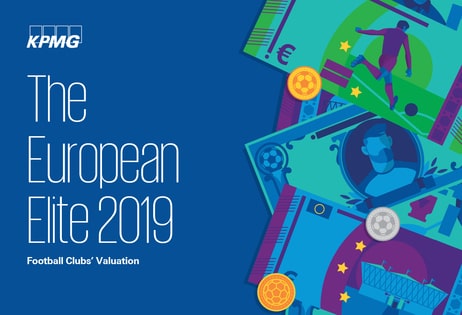For those surprised to hear football has a moral high ground, don't worry, it's all relative.
You may also be confused by my reference to the G-14. Wasn't that rich clubs' club disbanded three years ago when Uefa roundly defeated it/temporarily bought it off (it's a matter of some debate)?
Erm... yes. And no.
The original G-14 may have had to accept a few new members (187 of them), drop some lawsuits and agree to a rebranding but things aren't so different at the European Club Association (ECA) these days.
Based in Nyon, the organisation has just staged its seventh general assembly. The venue for the two-day gathering was Geneva, just 20 miles down the shoreline, but there was nothing neutral about the conversation: clubs are the most important voice in football, not federations, and there is far too much international football played with players we provide practically free of charge.
The ECA's new "common position on good governance" sounds a lot like the kind of thing the G-14 talked about, which in itself is no surprise as it is the same people doing most of the talking.
Barca and Real, Liverpool and United, AC and Inter, Juve and Bayern... these were the biggest gorillas in the jungle in 2000 and - give or take a Chelsea or City - they remain that way.
So when it comes time to hear what the ECA thinks about international fixtures, football finance, youth development and so on, it is Barca and Real, Liverpool and United, AC and...you get the idea.
But it wasn't supposed to be this way.
The formation of the ECA was meant to be a defeat for the G-14, which by this time had grown to become an 18-strong lobby group representing teams from seven leagues.
Their concerns were primarily a lack of compensation from the federations for using their players, the absence of insurance against injury on international duty, too many friendlies (stop me if you have heard this before) and not enough say in the game's running.
To get their way the G-14 clubs took legal action and issued veiled threats about taking their ball home and setting up an NFL-style league of their own.
New Uefa president Michel Platini was having none of this, or so he said, and called on the "elitist" G-14 to disband.
But six months later, Fifa and Uefa had agreed to share more of their tournament revenues with the clubs and push the federations to insure the players properly.
Platini even watered down his attempt to democratise access to the Champions League cash machine, which was already the ultimate example of the compromises Uefa has been forced to make with the most powerful clubs.
The quid pro quo was that the G-14 would drop its lawsuits and open itself up to clubs from all 53 nations represented by Uefa. With all those rivals under one umbrella, this looked like a classic divide-and-rule strategy.
So why, three years later, are the clubs back stronger than ever?
The answer was pretty clear at the Hotel President Wilson this week. There are 20 or so clubs (you can probably guess them) who make all the running at the ECA, chair the working groups, sit on the board and communicate the message. Most of the rest look happy just to be invited.
The G-14's power has not been diluted, it now comes with the added punch of the also-rans and aspiring upstarts from two dozen wealthy leagues. And frankly, if they cannot gain a few concessions from a very compromised Fifa they might as go off in a huff and play amongst themselves.
This sounds grim for fans of the international friendly. Derided by clubs and increasingly dismissed by large sections of the media, they are central to the business plans of federations across the globe, including our own Football Association, not to mention integral to preparing teams for tournaments.
But do you need so many of them? And do they have to be scattered throughout the year? Come to think of it, do you need full-time international managers?
Argentina have 21 games this year, including 14 friendlies. Brazil have 15 games, 11 friendlies. Germany play 13 times, Italy 12. England are practically part-timers with a probable nine games this year and one of those was called off.
ECA chairman Karl-Heinz Rummenigge, who also happens to be chief executive of Bayern Munich, dismisses many of these games as "nonsense" designed only to raise money. His counterpart at Manchester United and fellow ECA board member David Gill agrees. He must get the teas in when this subject comes up at the FA board meetings he also attends.
It is a similar story when we talk about the division of TV and sponsorship money from the World Cup and European Championships, which are hugely lucrative to Fifa and Uefa respectively.
The clubs saw about 1% of the cash that flowed from South Africa 2010, they won't put up with that again. And Uefa's desire to expand the 2016 European Championships in France to 24 teams - and sell the TV rights centrally - will almost certainly result in a bigger TV slice going to the clubs.
So the G-14 clubs are on the march again and the threat of breakaway organisations and ending international competition is the weapon of mass destruction that nobody wants to talk about in public.
Blatter and Platini will have to make concessions but all is not lost for the international game. The ECA's members are in agreement now but that is only because they have not really started to get their heads around the status quo-preserving implications of Uefa's new financial fair play rules. G-14 v the rest could save the friendly.{jcomments on}
 IN ENGLISH
IN ENGLISH 








































